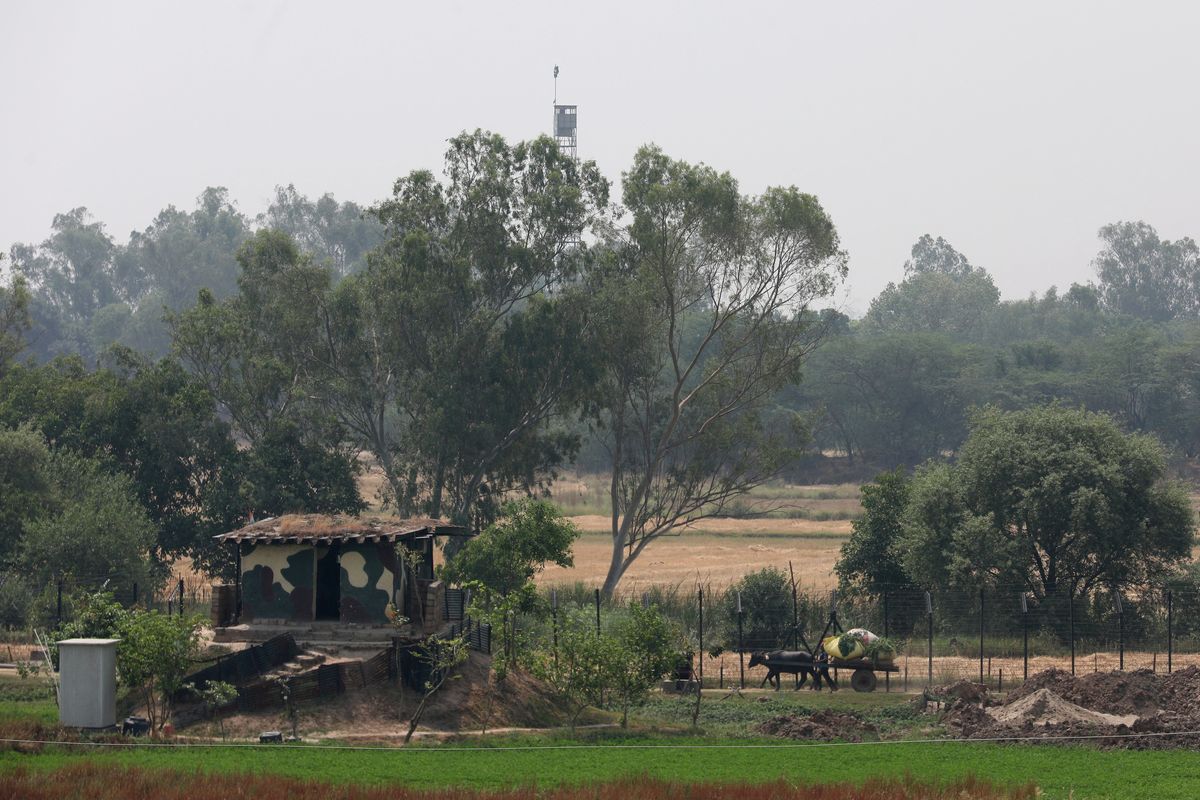India's Modi seeks to avoid Trump's wrath
Modi to hold joint press conference with Trump, rare move for Indian leader who usually avoids questions from reporters

Indian Prime Minister Narendra Modi will meet with US President Donald Trump on Feb 13 at the White House.
File/AFP
India has made tariff concessions and accepted US military flight carrying migrants
Modi and Trump yet to reach breakthrough on bilateral trade deal
Modi supported Trump's immigration policies by cracking down on illegal migration from India
Indian Prime Minister Narendra Modi will try to rekindle his bromance with Donald Trump -- and avoid the US president's wrath on tariffs and immigration -- when they meet on Thursday at the White House.
Modi will also hold a joint press conference with Trump, the White House said -- a rare move from the Indian leader, who is a prolific social media user but seldom takes questions from reporters.
The latest in a series of foreign leaders beating an early path to the Oval Office door since the Republican's return to power, Modi shared good relations with Trump during his first term.
The premier has offered quick tariff concessions ahead of his visit, with New Delhi slashing duties on high-end motorcycles -- a boost to Harley-Davidson, the iconic American manufacturer whose struggles in India have irked Trump.
India also accepted a US military flight carrying 100 shackled migrants last week as part of Trump's immigration overhaul, and New Delhi has vowed its own "strong crackdown" on illegal migration.
India's top career diplomat Vikram Misri said last week that there had been a "very close rapport" between the leaders, although their ties have so far failed to bring a breakthrough on a long-sought bilateral trade deal.
Modi was among the first to congratulate "good friend" Trump after his November election win.
For nearly three decades, US presidents from both parties have prioritized building ties with India, seeing a natural partner against a rising China.
But Trump has also raged against India over trade, the biggest foreign policy preoccupation of his new term, in the past calling the world's fifth-largest economy the "biggest tariff abuser."
Former property tycoon Trump has unapologetically weaponized tariffs against friends and foes since his return.
'Trump's anger'
Modi "has prepared for this, and he is seeking to preempt Trump's anger," said Lisa Curtis, the National Security Council director on South Asia during Trump's first term.
The Indian premier's Hindu-nationalist government has meanwhile obliged Trump on another top priority: deporting undocumented immigrants.
While public attention has focused on Latin American arrivals, India is the third source of undocumented immigrants in the United States after Mexico and El Salvador.
Indian activists burned an effigy of Trump last week after the migrants on the US plane were flown back in shackles the whole journey, while the opposition accused Modi of weakness.
One thing Modi is likely to avoid, however, is any focus on his record on the rights of Muslims and other minorities.
Trump is unlikely to highlight an issue on which former president Joe Biden's administration offered gentle critiques.
Modi is the fourth world leader to visit Trump since his return, following the prime ministers of Israel and Japan and the king of Jordan.
Modi assiduously courted Trump during his first term. The two share much in common, with both campaigning on promises to promote the interests of their countries' majority communities over minorities and both doggedly pursuing critics.
In February 2020, Modi invited Trump before a cheering crowd of more than 100,000 people to inaugurate the world's largest cricket stadium in his home state of Gujarat.
Trump could visit India later this year for a scheduled summit of the Quad -- a four-way grouping of Australia, India, Japan and the United States.
Popular
Spotlight
More from World
Pakistan denies Indian claims of attacks and downed jets, calls reports 'fake'
Pakistan's Foreign office says India is spreading false news to justify aggression













Comments
See what people are discussing